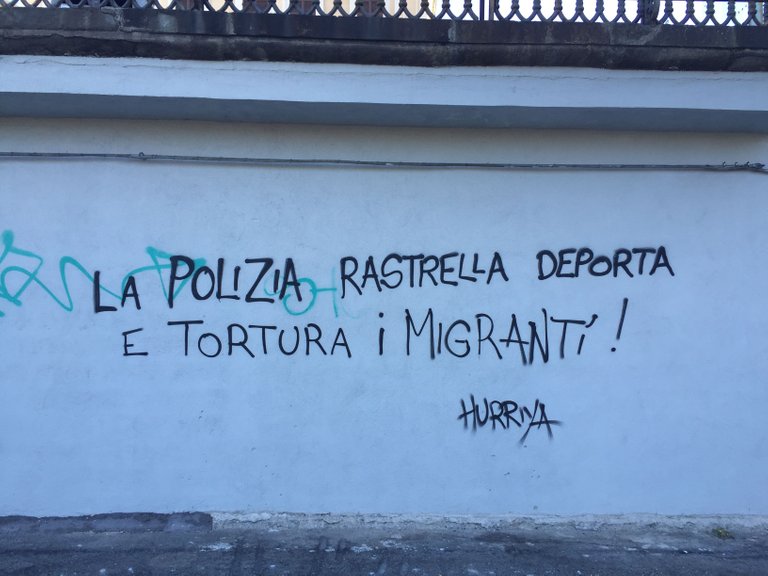The police arrest, deport, and torture immigrants -Hurriya
Genoa nestles itself on the Italian Riviera. Nicknamed "La Superba," "The Proud One," it is well known for its music, art, and most importantly, its maritime history. Since its founding as early as the fifth millenium BC, Genoa has been a hub of maritime trade and seafaring, making it one of southern Europe's richest in the early renaissance. Its economic power was equaled by its political power, and at its zenith maintained a large navy, complete with privateers, and expanded to control islands in the Mediterrenean and territory in the Middle East acquired during the Crusades. Its strength as a maritime power should not be eclipsed by the fact that it was the birthplace of Christopher Columbus in late 1451. Wherever Genoa went, from its colonies in the Middle East to the New World, it carried with it the pride of the Mediterrenean.
Genoa is, as it always has been, primarily a port. Its nature has evolved with the times, and althought it still maintains a naval facility, is now a cruise terminal and harbor for ferries. The ferries run voyages to Tunisia, Libya, and Turkey several times a week. To those witnessing the Arab Spring in Tunisia, civil war in Libya, and government crackdowns in Turkey, the ferries, and the opportunity for a better life in Europe, become very appealing.

In 2011, Genoa was almost 95% Italian, 14% of whom were under 18 years-old. A walk along the Genoa Harbor in 2016, however, made it clear that this was no longer necessarily the case. Parks and town-squares were largely filled with immigrants from North Africa and the Middle-East, many of whom were undoubtedly refugees from war-torn countries. While there is no evidence that the refugees and immigrants pose any danger to Italians and the Genoese, their higher birth-rates, foreign language, and virulently good doner-kebabs lead many to believe that the Genoese culture is being eroded. Under these circumstances, the immigrant communities come under heavy scrutiny, just as they do in other parts of Europe and America.
"La Polizia Rastrella, Deporta, E Tortura I Migranti!" was written on a wall not far from the harbor; my wife and I crossed it on our way back to the train station. I could not pass without capturing its message: "The Police Arrest, Deport, and Torture Immigrants!" Did the artist, affecting the tag "Hurriya," fall victim to terrible abuse at the hands of the Italian authorities? Did Hurriya witness someone else's abuse?
Genoa once launched as many as two-million Italians to New York between 1861 and 1875. My ancestors may well have been among them.
